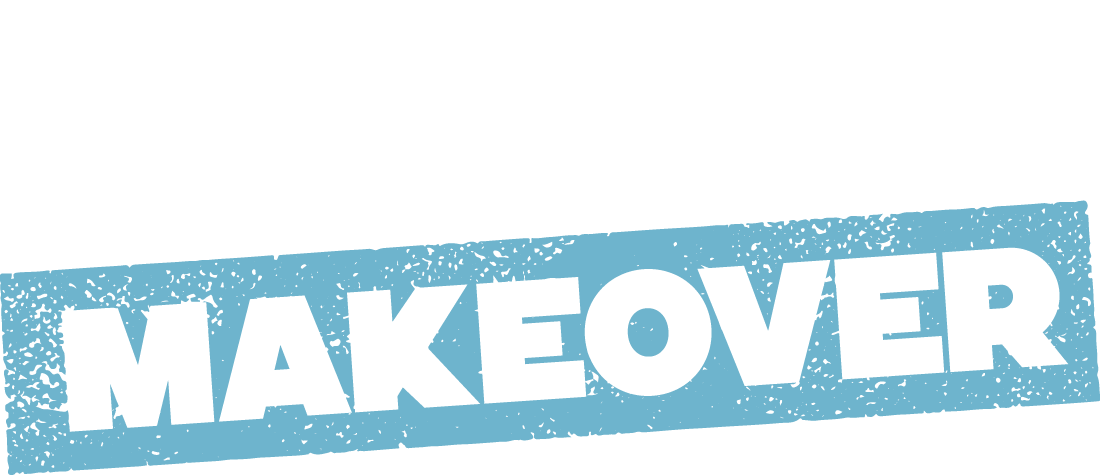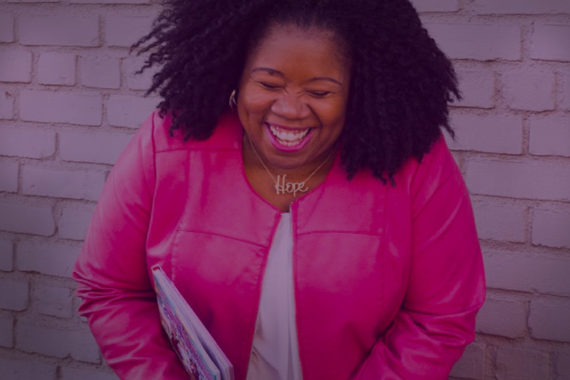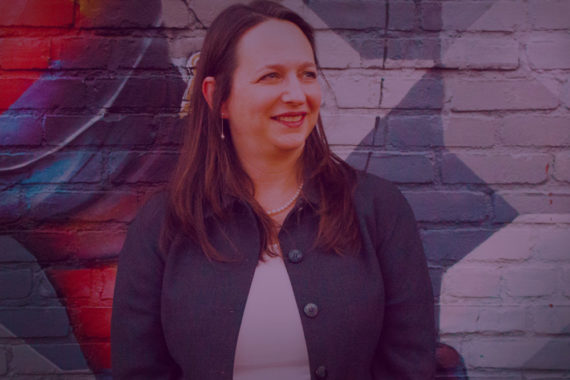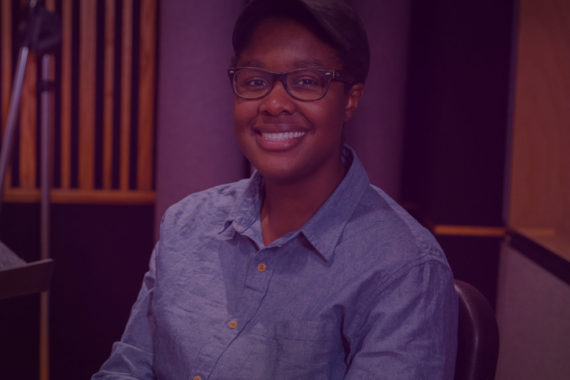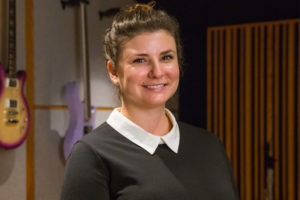
Amy Cagle, Co-Founder, DayOne Response
(photo credit: Sandra Garcia)
Pitch Makeover host Natalia Oberti Noguera and producer Gina Delvac get the 60-second pitch from Amy Cagle of DayOne Response, a solution addressing the vital need for clean water. In the Legal Minute, Mitzi Chang of Goodwin answers common startup questions. Our First Pitch segment explores Amy’s pitch evolution. Plus, this week’s Investor Take from Ruth Ann Harnisch of The Harnisch Foundation.
Music courtesy of Seven Seas Music (a Pipeline Angels portfolio company!)
EPISODE TRANSCRIPT
Natalia: Hi everyone, my name is Natalia Oberti Noguera. I am the Host and Creator of Pitch Makeover and I’m also the Founder and CEO of Pipeline Angels, where we are changing the face of angel investing and creating capital for women and non-binary femme social entrepreneurs.
Gina: And I’m Gina Delvac, the Founding Executive Producer of Pitch Makeover. We’re taking the concept of a fashion makeover and applying it to startup pitches. Entrepreneurs pitch, we talk, and then we share some feedback on what they should keep, delete, and maybe even more important—add to their pitch. Our goal—help more voices, as Rihanna says, shine bright like the diamonds that they are.
And after the Pitch Makeover we have the Legal Minute with Mitzi Chang of Goodwin, answering burning startup legal questions, followed by First Pitch. And stay till the end for this week’s Investor Take from Ruth Ann Harnisch of The Harnisch Foundation.
Welcome back to Pitch Makeover. I’m Producer and Co-Host [1:00], this week, Gina Delvac back with your all-the-time host, Natalia Oberti Noguera, and we’re joined today by Amy Cagle. Welcome Amy!
Amy: Thank you, excited to be here today!
Gina: So, we’re so excited to have you! Are you ready for your one minute pitch?
Amy: Yes, I am.
Gina: Ready? Set? Pitch!
Amy: Good afternoon. My name is Amy Cagle and I am co-founder at DayOne Response. Each year, over 255 million people are affected by natural disasters and, without access to clean water, face life threatening conditions. The American Red Cross says providing clean drinking water is the number one challenge in disaster zones. At DayOne Response, we are addressing the global need for clean drinking water through our flagship product the DayOne Waterbag, a ten-liter water backpack that turns [2:00] dirty, contaminated water into clean drinking water in just thirty minutes. Having provided over seven million liters of clean drinking water in over twenty-five countries, DayOne Response is positioned as a leader in the water and sanitation industry. And our vision is to provide clean drinking water worldwide on day one because clean water saves lives.
Gina: 1 minute, 4 seconds.
Amy: Okay. (Laughs)
Gina: Great job, Amy.
Amy: Thanks! (Laughs)
Gina: Thanks for joining us. So, I’m going to take a moment, Natalia, my friendly ghost, is writing some notes which she’s going to whisper to us. So Amy, you mentioned that DayOne is the leader in the water sanitation industry? How big is that industry?
Amy: So, the industry overall, for water, is US$5B internationally.
Gina: And you mentioned that the American Red Cross says that clean drinking water is the number one basic need that’s unmet?
Amy: Yes. Providing clean water is the number one [3:00] challenge in disaster zones.
Gina: Can you tell us a little bit more about this number, 255 million people are affected by natural disasters?
Amy: Yes. So there’s natural disasters happening every day whether or not we hear about it in the news. From typhoon in the Philippines to earthquakes, like the big earthquake we had in Nepal last year, to tsunamis that take place, to just everyday disasters happening in a lot of countries around the world. For example, we worked in Benin in west Africa and just every day there is a struggle to get clean water. So it’s really just disasters happening all of the time, unfortunately. Our goal would be so that there’s no disasters happening, but that’s a reality that we face.
Natalia: Are you ready for your Pitch Makeover?
Amy: Yes, I’m ready.
Natalia: Awesome! So, I have to say you have a solid foundation for your pitch. There’s [4:00] a lot of stuff I want you to keep, because it’s so awesome. When you mentioned the 255 million people that are affected by natural disaster, you put a visual, you know, for people who might think about natural disasters in an abstract way because thankfully they haven’t faced or encountered that situation. And at the same time you’re showing how many people are affected by, you know, natural disasters.
I also thought it was important, your decision to add the point about the American Red Cross saying that the number one challenge facing the world is finding clean drinking water because—and this is what entrepreneurs have to do, it’s important for them to do—is find that, almost like third party, credibility. Right? And so you did that. I was like, “Check! Endorsed.” Right? [5:00] In terms of someone who has been in the field, is a thought-leader, and like some people would say is a do-leader, right? And then you also talked about what the *product* is. Which is so important. You know, like, what does it actually do? Because it’s one thing to say, “This is the problem.” It’s also important to get the listener to understand—potential investor, you know, potential funder, potential volunteer, potential consumer—to understand really how it is that you’re solving the problem. So I’d say, like, keep that “what is the product.” And I was glad that you brought up the market that DayOne Response is in because it’s not just this simple solution for a specific problem, there’s an *industry* and the industry is the water and sanitation industry. So, of course—and I’d say the way that you finished it with, [6:00] “…clean water saves lives,” you know, like, I still remember it because it’s so memorable, you know? So, so like, love, and let’s make sure that we keep all of that stuff. And I’ll say it again, don’t worry.
In terms of parts that I’d say that you could delete, you made it a tough job for me to find something to delete, Amy. I will say just very candidly, each second is precious. And so, I’m glad you said good morning to us, at the same time you can use that “Good morning” to just really talk a little bit more about something else. So I’d say like, delete the “Good morning.” Yes, I’m saying that! Can you imagine? Like, where are the manners? Where’s the etiquette? [Amy laughs] So we can really focus and hone in on your pitch. So just keeping that in mind, in terms of you can add a few seconds to give more info for yourself.
You know, another example of where you can try to make more room for more important [7:00] details that you’d like to share with the listener is—you mentioned something along the lines of the *vision* of DayOne Response. And ‘vision’ is a really great word. At the same time, that sort of “flowery” language that you could very much say instead of “the vision of DayOne Response”, you could say: “DayOne Response”—or actually, like, in the context of we already know that you’re DayOne Response—I think, that’s like Day-One-Res-ponse, that’s like four—
Amy: Yeah. [Laughs]
Natalia: —is it syllables? [Amy Laughs] Is that it? So you could just say one syllable—we. You could say, “We provide clean drinking water on day one.” Right? Like, just thinking of ways that you can really cut and make it—almost like, I think of it often in terms of an entrepreneur who tweets actually is a really, great helpful routine because 140 characters helps someone become more concise and get to the point.
So just think about where are those little places [8:00] where you can do that with the pitch because there are two things that I’d love for you to make sure to include in your Pitch Makeover. I would love for you to add—yes it was great that you mentioned that DayOne Response is the leader in the water and sanitation industry, it is even *better* if you’re able to talk about the *size* of that industry. And you mentioned that it’s a US$5B *global* industry and that’s a really impressive number and to be a leader of such a huge market, it’s something that would be great for you to underscore.
And then the other thing is I’d love for you to add—you know in our conversation, I asked you to talk a little bit more, like, “so tell me more about the 255 million people who are affected by natural disasters.” And then you started talking about how natural disasters happen every day even if they don’t make the news, right? [9:00] Or at least, they do make the news but however, unfortunately, not the mainstream media, right? And so, somehow being able to even just combine, like, the hard facts. You know, of like “these are the stats.” And also, I’d say humanizing it by talking about how, yes these are big numbers and it might be easy to get lost on the big numbers, at the same time, guess what? This happens *every* day. Right? So, depending on, like, how we’re doing—how you feel you’re doing on timing—yes it would be great for you to talk about—almost, like, you know, like, people say, like, exhibit A or like case study. Like, maybe bring up one or two of the examples that you mentioned because then it really provides a face to the problem you’re solving and that’s so important because at the end of the day we’re talking about people, [10:00] we’re talking about water, and we’re talking about a basic—not just a basic need—a human *right*.
So, Amy, to recap this is DayOne Response’s Pitch Makeover. I want you to keep the 255 million people who are affected by natural disaster. That figure is *so* compelling. Also keep, you know, the third party stat of the American Red Cross saying that the number one challenge faced globally is lack of clean water. Keep the description of “what is the product.” Keep that, “DayOne Response is a leader in the water and sanitation industry.” And obviously, keep your tagline that clean water saves lives. In terms of what I’d love for you to delete. Delete the extra words. Let’s say, like, those words that if you were doing a 140 character tweet [11:00] you’re like, “Okay so this word goes.” And I’d say in terms of add, make sure to add the fact that DayOne Response is the leader in the water and sanitation industry which is a *US$5B* global market. And also, you know, add how you made this stronger connection for someone in terms of making it easier for them to get what you’re doing by just mentioning that simply natural disasters happen every day even though they might not make it into the mainstream media. It’s an important, and unfortunately needed, wakeup call that you’re doing.
Amy: Thank you for the feedback.
Gina: Amy, are you ready to pitch again?
Amy: Yes, I am.
Gina: Ready? Set? Pitch!
Amy: My name is Amy Cagle and I am co-founder at DayOne Response. Each year, over 255 million people are affected by natural disasters and without access to clean water, face [12:00] life threatening conditions. And these disasters are happening every single day. The American Red Cross says providing clean drinking water is the number one challenge in disaster zones. At DayOne Response, we are addressing the worldwide need for clean drinking water through our flagship product the DayOne Waterbag, a ten-liter water backpack that turns dirty, contaminated water into clean drinking water in *just* thirty minutes. Having provided over seven million liters of clean drinking water in over twenty-five countries, DayOne Response is positioned as a leader in the *US$5B* global water and sanitation industry. We want to provide clean drinking water on day one because clean water saves lives.
Gina: 1 minute, 1 second. [Amy laughs] What did you think of the Pitch Makeover, Amy?
Amy: That was *very* helpful. I think it’s really good to [13:00] take a look at the pitch with a fine tooth comb and really see what words can you remove, what words can you change, and really like, how to make more impact in one minute.
Gina: Next up is the Legal Minute with Mitzi Chang. Stay tuned after that for First Pitch.
I’m back with the Pitch Makeover Legal Minute with Mitzi Chang from Goodwin. And Mitzi, why are term sheets so important for founders when they are seeking investment?
Mitzi: So, I think a term sheet serves a few purposes. The first purpose is, you have all of the material terms of the investment on a pretty short summary of the agreements that are going to be drafted. So once those major business terms are agreed to then, your, you know, you go back to your lawyers and you have them draft it. That saves money, on the front-end, because all the business terms, at least for the most part, are negotiated. Number two, you can really negotiate and kind of hammer out any business [14:00] issues or issues with the terms *there*. Right? Before you actually spend money and try and negotiate lengthy documents. It’s all on one piece of paper to the extent that there’s any issue or things that you disagree with the investor on, you hammer it out there.
Gina: Thanks, Mitzi.
Mitzi: You’re welcome!
Gina: This has been the Legal Minute on Pitch Makeover. Now we’re back with entrepreneur Amy Cagle in our segment First Pitch. Tell us about your first time pitching.
Amy: Okay, so the first time pitching we were invited to an event called Innovation Quest. It was an incubator out of our university, Cal Poly San Luis Obispo, and I was extremely nervous to pitch. I think we had about five minutes of time and I also did a product demo, kind of before and after. So it was live and moving [Laughs], so I was definitely nervous about that. [15:00] Overall, I did the pitch. I definitely saw afterwards, you know, ways that I could improve, but it just felt good to finally do it after practicing [Laughs] so much. We did have some product malfunctions [Laughs]. The first time that I did it I had someone helping me and they had mixed the water bag for thirty minutes instead of five minutes. So there was, you know—the water bag didn’t look as visually clean [Laughs] as it usually does. So I was nervous about that as well, but it ended up working out. Through that event we were able to get investors and also some advisors that came on board and have been helpful ever since.
Gina: Wow, congratulations!
Amy: Thanks!
Gina: What did you learn from that first experience pitching?
Amy: I think I learned a lot about not including too much in the pitch. You don’t need to get into all of the details. Just keep it really high level [16:00] and kind of tease the audience so that they ask the questions that you want them to ask, that you already have the answers for and are really prepared to talk about. So, letting them know about the different markets that you’re working in, but not going into the details of what you’re doing in each of those markets. Really letting them ask that question. Or talking about your sales or revenue numbers, but not going into the details on your *margins* and things like that. That can really get pulled out in the due diligence questions after the pitch.
Gina: Tell us about your most recent experience pitching, aside from today on the show.
Amy: Sure. So, my most recent pitch was in Dubai with a women’s angel investment network and it was a less formal pitch, more of a dinner event. So it’s structured a bit different than a normal pitch, but was able to get through that because I had practiced the formal pitch so many times [17:00] I was able to bring up all of the talking points within a dinner conversation. And that pitch was great! Again, we were able to kind of drum up some support internationally. And I think that’s one thing looking back at the company and how we’ve been able to grow is just seeing, you know, from that initial pitch where we’re really in the Bay area, you know, now we’re doing international pitches and really kind of growing our presence because that helps, you know, being a global company really having investors in different areas around the world as well.
Gina: Our friendly ghost, Natalia, is going to jump back in for a question.
Natalia: Amy, oftentimes we talk about different investor profiles and we talk about diversity. *Geography* is also a different form of diversity. Can you share a little more about how it has been working with investors, you know, from other countries? Are there any patterns that you’ve seen versus, you know, like west coast—you know, we often talk about how *west* coast investors are different from *east* coast investors [18:00] so—and now you have this global perspective, so I’d love for you to share a little bit more.
Amy: Right! So I would say that having diverse group of investors, internationally, has been extremely helpful. So we have investors in Australia, Dubai, Europe, obviously across the US, but I would say that very strategic for us is having investors based out of the UAE. Just because they really understand the humanitarian issues because there’s so much going on so close to them with Syria being right there and all of the refugee camps and response. And also in Dubai there’s a humanitarian village there, where they store all of the logistic supplies for all of the international aid organizations. So really having that investment group there has been helpful in making the connections with the NGOs that are based there and just kind of opened up almost a whole new market for us. [19:00] And then just being able to serve our markets better geographically from a *disaster* response level. It’s important to be able to get to a situation within twenty-four to forty-eight hours and, you know, we’re far away here in the US from where most disasters happen. So it’s really helpful for us to be able to have right-away response from that area of the world.
But overall, just the perspective from the investors. You know, they have friends that are in Jordan or in Syria and one of our investors gave me the story of—she saw, you know, one of her friends was out of water for *days*, you know, based in Mosul. So, you know, that’s the kind of stuff I think investors here don’t have, like, one-on-one contact with maybe disaster victims, so a little stepped away. So in that sense that really helps the company succeed and helps keep our mission to provide water and it’s been extremely helpful.
Natalia: [20:00] Well and we’re super proud to count DayOne Response as a Pipeline Angels portfolio company and have you showcase this specific way of changing the world and of course in my mind, I’m still thinking that the US, you know, there are issues here too. You know? Like, there’s Flint, Michigan and thinking about ways that we can also support within the US and the other thing that you mentioned which is it’s so much about, as soon as someone has a direct connection. Right? That it’s a different way of thinking and so my hope is that of course we can get beyond that. Just try to get clean drinking water wherever it’s needed. I—The reason that Flint, Michigan is just so top of mind for me is because I love drinking tap water. Because I remember growing up that, you know, my mom would get either, like, those gallons of water or she would boil the water. Like, I don’t remember, apart from the US—[21:00] I don’t remember turning on the tap water and, and like, I can drink directly from it, you know? Like, it was—and so like, I remember, I have these memories from college, I was like, “Oh my gosh! I can just go to the bathroom and, like, it’s done.” And to realize that this is something that some people are born—and throughout their lives they don’t even think twice that that’s something that they could do, you know? Like, so, this episode’s Pitch Makeover Tip is make the abstract concrete. Amy mentioning that DayOne Response being a leader in the water and sanitation industry—that was a very powerful point she made. It was made even stronger when she let us know that the water and sanitation industry is a US$5B global industry. So, think about how you can make something abstract [22:00] such as an *industry*, whichever you’re part of, concrete by giving specific, tangible numbers.
Thanks, Gina, for buddying up today. And thanks Amy for being open to getting a Pitch Makeover and being part of our first season. We were so thrilled to have you!
Amy: Thank you. Thank you so much for the opportunity.
Gina: This season’s Investor’s Take is brought to you by Ruth Ann Harnisch of The Harnisch Foundation and today’s Investor’s Take is watch the clock, which we are doing right now, Natalia.
Natalia: You know how much easier these investor takes started being once we had, like the time in front of us? [Laughs]
Gina: Once we’re watching the clock! We’re taking our own time seriously.
Natalia: I will say also, that oftentimes, when people are thinking of watching the clock, is they are thinking of not going over and the other thing that we have also learned through our Pitch Makeover podcast sessions with our fantastic more voices entrepreneurs is, “Hey! If you get a minute, use the whole minute [23:00] because—don’t leave time on the table because you might not have a second chance.” So leverage the time you have and don’t underutilize it.
Gina: Thanks again to Ruth Ann and The Harnisch Foundation for this season of Investor Take.
Natalia: Hey! Leverage! We have one—
Gina: Okay!
Natalia: —more second. [Laughs]
Gina: I know! [Both laugh] I did not know what else to say. [Gina laughs]
Natalia: Thanks, Ruth Ann!
Gina: Subscribe to Pitch Makeover anywhere you’re listening right now, including Google Play or Apple Podcasts, where we’d love for you to leave us a review. More information and show notes are at pitchmakeover.com and we’re everywhere on social media @PitchMakeover.
Natalia: Thanks for joining us. This has been Pitch Makeover. Now, go out and take over!
